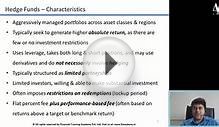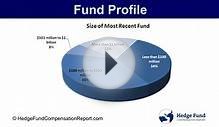
 through the stock exchange decrease (or "crash") of October 2008, various media outlets have loudly identified the effect of huge hedge fund liquidations as a key ingredient into huge equity sell-off.
through the stock exchange decrease (or "crash") of October 2008, various media outlets have loudly identified the effect of huge hedge fund liquidations as a key ingredient into huge equity sell-off.
1. Meeting Redemptions
A hedge investment need not continually spend, as a mutual fund does. Rather, a hedge investment enables its investors (typically "limited partners") to redeem all or element of their particular investments on a periodic foundation. These redemptions frequently follow really rigid guidelines according to the hedge investment working arrangement. Typically, limited partners can only withdraw resources on a quarterly or yearly foundation. Also, advanced level notice (30 or maybe more times) for redemption on hedge fund supervisor can be needed. Equally there might be a "run on a bank" there can also be a run on a hedge investment - specially when performance is bad. Thus when redemptions occur they have a tendency becoming clustered across the whole hedge fund industry in a tiny window period.2. The FOF Result
There are particular hedge funds that are put up as profiles of various other hedge resources. They're named fund of resources (FOF). The concept is broaden amongst many hedge resources. But whenever a FOF is within redemption mode this has a decision which will make: Either the FOF redeems the same number of investments across all its hedge funds or it pulls out larger quantities from various hedge resources. Selling a tiny bit of numerous resources might have little impact on the liquidity of one fund. But liquidating a sizable part from a single fund could have serious effects upon that individual investment.3. Influence
Normal people tend to be susceptible to Federal Reserve Regulation T. Under Regulation T an investor should buy a stock by borrowing money from a broker-dealer in a margin account. Underneath the margin rules the investor has got to post 50% regarding the price in cash or any other margin security. Another 50per cent is lent through the broker-dealer. Thus under Regulation T the trader has actually 2-to-1 leverage. Theoretically, the investment has got to depreciate by 50per cent to help the trader to be wiped out of their equity.YOU MIGHT ALSO LIKE

WST: Overview of Financial Mkts - Alternatives & Hedge Funds

Hedge Funds - An Introduction

2014 Hedge Fund Compensation Report









